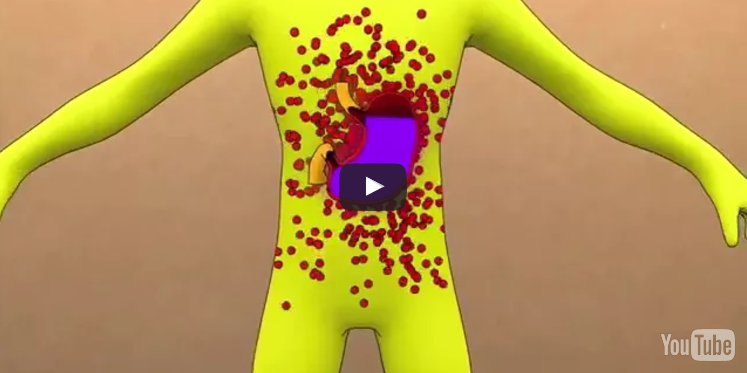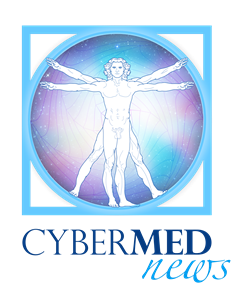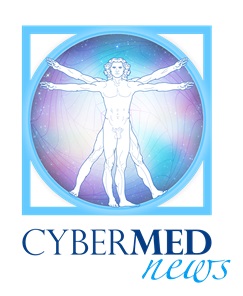 Share on Facebook
Share on Facebook
 Throughout human history and in all areas of study, one thing remains constant: Everything we believe to be certain will change. Einstein’s published paper on special relativity, for example, which challenged the accepted framework of knowledge and understanding at the time, forced the scientific community to open up to an alternative view regarding the nature of reality. When new ideas emerge that dispel the old, in science, health, or any other field, there will always be harsh resistance. When the human mind is bombarded, for years, with information and belief systems that claim “this is,” it’s always hard to take on a new perspective, or entertain new information that points in a different direction. Galileo Galilei is a great example of this kind of resistance; he was convicted by the Catholic Church and most of his works destroyed for suggesting, among other claims, that Earth was not the center of the universe. The discovery of any paradigm shifting information will always be an interesting time to live through, and we are living through it now.
Throughout human history and in all areas of study, one thing remains constant: Everything we believe to be certain will change. Einstein’s published paper on special relativity, for example, which challenged the accepted framework of knowledge and understanding at the time, forced the scientific community to open up to an alternative view regarding the nature of reality. When new ideas emerge that dispel the old, in science, health, or any other field, there will always be harsh resistance. When the human mind is bombarded, for years, with information and belief systems that claim “this is,” it’s always hard to take on a new perspective, or entertain new information that points in a different direction. Galileo Galilei is a great example of this kind of resistance; he was convicted by the Catholic Church and most of his works destroyed for suggesting, among other claims, that Earth was not the center of the universe. The discovery of any paradigm shifting information will always be an interesting time to live through, and we are living through it now.
One of these areas of dramatic change is the field of health, as the world is seeing what could be called a modern day health revolution. With disease rates rising consistently each year, people are much more health conscious than they were before. Our modern day food industry is being exposed, and how our food is made, what goes into it, what is sprayed on it, and where it comes from has become essential information to the modern consumer.
It turns out that the government organizations we trust with our food safety aren’t so concerned after all, and that’s not a surprise given that big corporations, like Monsanto for example, dictate a lot of government policies that are used to regulate themselves. These revelations have come out mostly within recent years, with the most recent example coming from a whistleblowing CDC scientist.
Then we have dozens of statements like the one below:
“It is simply no longer possible to believe much of the clinical research that is published, or to rely on the judgment of trusted physicians or authoritative medical guidelines. I take no pleasure in this conclusion, which I reached slowly and reluctantly over my two decades as an editor of the New England Journal of Medicine”
– Dr. Marcia Angell, a physician and longtime Editor-in-Chief of the New England Medical Journal (NEMJ)
All of our guidelines forming our perception of proper nutrition come from the science that’s regulated by big food and pharmaceutical companies. As a result, we’ve been misled in schools and as consumers, and corporate efforts to undermine research now plague peer-reviewed science.
Where Do You Get Your Protein From?
When you ask someone why they eat meat or why it’s so important, the first answer that comes to mind will probably be “protein,” the argument being that we have been eating it in large amounts for thousands of years. Well, the truth is that we don’t know that for certain. New information has emerged which has caused some experts to believe our ancestors were nearly all vegetarian.
In fact, a recent study published by a team of archaeologists in Europe found that Neanderthals from Spain actually ate no meat at all. So, basing our current behaviour on the notion that “things have always been this way” could actually be completely misguided, despite the fact that this is the general accepted consensus from the masses. But things are changing.
Part of that shift in thinking doesn’t only come from studying archaeology and our modern day food industry; it’s coming from modern day science, which has discovered that animal protein tends to create an acidic condition in the body known as metabolic acidosis.
Metabolic acidosis happens when the body produces too much acid and becomes very acidic. This isn’t good, especially when you think about the fact that many experts warn against an acidic body, and believe that an alkaline diet can actually successfully treat cancer. Here are some signs that your body is too acidic and what you can do about it. This type of condition can also result from liver failure, cancer, prescription medicines like salicylates, seizures, or a prolonged lack of oxygen from shock, heart failure, or severe anemia.
Metabolic acidosis forces the body to compensate by leaching calcium from the bones to help neutralize the increased acidity. Over time, all of this can have severe and detrimental effects on bone health, and studies have shown this. Science tells us that nations with high instances of hip fracture and osteoporosis also have a very high calcium intake. Given this correlation, and the fact that animal protein causes metabolic acidosis, sucking the calcium out of the bones — in direct contrast to what the dairy industry would have us believe — it’s easy to see that we have been misled.
“When we compare these high protein, low fat milk products, for example, with prostate cancer, the relationship is as strong as it is for cigarettes and lung cancer.”
– Dr. Colin Campbell
If someone tells you, “I need my protein,” and that’s why they eat meat, they are vastly misinformed. Let them know that you don’t need protein from meat to be healthy; in fact, it is the complete opposite, as plant-based protein, according to many, is a healthier alternative.
According to Dr. Deepak Bhatt, a Harvard Medical School professor and Editor-in-Chief of the Harvard Heart Letter:
“When it comes to getting protein in your diet, meat isn’t the only option. Mounting evidence shows that reducing meat and increasing plant-based protein is a healthier way to go. A diet with any type of meat raises the risk of heart disease and cancer, when compared with a vegetarian diet.”
According to Harvard Medical School, “studies are confirming the health benefits of meat-free eating. Nowadays, plant-based eating is recognized as not only nutritionally sufficient but also as a way to reduce the risk for many chronic illnesses.”
A more recent study conducted by researchers at Harvard Medical School and Massachusetts General Hospital followed more than 130,000 people for 36 years, monitoring illnesses, lifestyles, diets, and mortality rates.
They found that substituting between 15g and 19g of animal protein, the equivalent of a single sausage, for legumes, pulses, nuts, and other plant protein, significantly decreased the risk of early death. Replacing eggs with plant-based protein also led to at 19% reduction in death risk.
Researchers found that a 10% higher intake of meat was associated with a 2% higher mortality rate and an 8% higher chance of cardiovascular death.
Plant-based diets can help prevent over 60% of chronic disease deaths, yet people are still arguing whether veganism is a safe and sustainable diet because of mass marketing and misinformation.
The China Study
One of the most comprehensive studies ever performed on this subject is “The China Study,” conducted by Drs. T. Colin Campbell and Thomas Campbell. Their findings showed direct correlations between nutrition and heart disease, diabetes, and cancer, proving that cultures that eat primarily plant-based diets have lower to no instances of these diseases and that switching to a plant-based diet can successfully reverse diseases already established in the body. The China Study is recognized as the most comprehensive nutritional study ever conducted on the relationship between diet and disease.
Dr. Colin Campbell, the lead author of that study, goes into detail about animal versus plant protein based on his findings in an article we published on his website, as well in his book and papers.
http://www.collective-evolution.com/2017/03/15/metabolic-acidosis-its-what-happens-to-your-body-when-you-eat-animal-protein/



